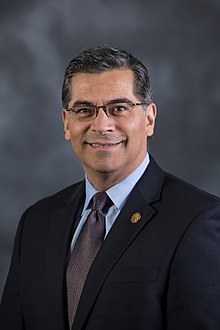
California State Attorney General Xavier Becerra has recently issued "clarifying" rules about what federal Immigration and Customs Enforcement (ICE) agents will be permitted to do in California courthouses.
The rules are, of course, absurdly restrictive and designed to obstruct access by ICE agents to aliens whom they have come to arrest for violation of immigration laws, including, often enough, prior convictions that render them deportable as criminal aliens.
This is the latest zigzag in the drama over ICE agents using courthouses to effect arrests after being denied access to criminal aliens in the relative safety of city or county jails in active sanctuary jurisdictions. (See, e.g., here and here for background.)
It is also the latest incursion by Becerra into domains of uniquely federal jurisdiction in his thinly veiled campaign to eviscerate any kind of uniform or fair immigration enforcement and control policy. As I noted in another blog, Becerra has already sued the federal government at least 40 times since Donald Trump came to office — and this doesn't take into account the sundry other things he has done by policy fiat, such as his most recent "rules" for courthouse access by ICE agents.
It is also ironic that Becerra masks these efforts to obstruct under the guise of making courthouses more accessible and free from taint. Yet in May of this year, he was criticized for filming a campaign ad inside California's Third District courthouse. If that isn't taint and politicization of the supposedly "non-political" judicial branch then what is?
But back to his new policies. In one fell swoop, Becerra, a former member of the House of Representatives, and therefore at least presumably familiar with the vague outlines of the Constitution, has managed to violate two key constitutional principles: First, the supremacy of federal power in matters involving immigration, which is an intrinsic function of national sovereignty; and second, the inviolability of the separation of powers, which, even under the California constitution, makes the judiciary co-equal and independent of the executive branch, of which Becerra is a part.
His actions are more the conduct one might expect in authoritarian tin-pot regimes such as the Castros' Cuba or Maduro's Venezuela, where the judicial branch is a weak appendage to be manipulated in whatever way the executive chooses.
In the long run, is this what Californians of any political stripe really want? Bend the judiciary to your will now, while the results are temporarily satisfactory, and you may in the future come to rue it at leisure.
